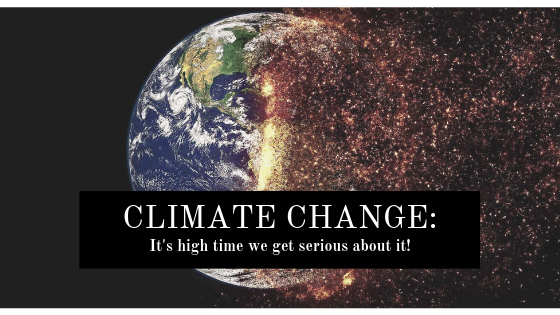
U.N. recently reported a warning on how we use the land. Deforestation by humans has already threatened the land to damage with the increasing emissions of carbon dioxide. Also, climate change can endanger how we use our land, having a major negative impact on food security and put us into extreme weather conditions.
Practices such as agriculture and logging are two of the major causes of human-induced greenhouse emissions. Presently, the jungles and other balanced lands have helped stabilize the negative impact of the emissions.
The past few years observe 11.2 gigatonnes of more carbon dioxide getting soaked in the forests, wetlands and several other systems. This is comparatively more than the annual emissions. Additionally, the quantity of emission is more than the world’s coal-fired plants emission in a year.
However, the destruction of land, its degradation practices and deforestation by humans can affect the land which is having potential, making it emit more carbon dioxide than absorbing.
It is high time that humans find our nature-based solutions for using the land in the right way. Else, they will have to be ready to witness the negative impact of climate change and global warming coming closer.
As per a recent discussion in an international conference on climate change, several ways were explored to reverse the trend and use the land precisely. It is indeed not rocket science to have them implemented immediately. If the governments in different sectors plan strict policies, researchers expect we can soon implement without any technological advancements. All we need is adequate attention to understand its importance, financial support by governments and several market players and enabling environments.
Restoring forests and reduced deforestation are the two ways which can be implemented immediately as urgent resolutions. This can contribute to keeping the disasters-like situations at bay and retain hopes of maintaining the temperature, restraining it from rising.
Food producers have turned forests into agriculture lands owing to the increasing demand for food at the global level. However, emissions from agriculture can have a massive impact on climate change and hence, the issues here have to be addressed when speaking of rising temperature and global warming.
Researchers suggest a slight change in dieting could also help fight against climate change in such situations. Reportedly, more than 25% of the food produced goes waste. If humans can rethink their dietary needs and eat accordingly, there can possibilities of reductions in the emissions.
One of the upcoming conference on global warming discusses Global Warming and Planning the Sustainable future. The prominent speaker Prof. Kamani K.K, CEO APCEO senior Expert Asia and worldwide will be putting forward his opinions on the same.
To understand the vulnerability of the issue, it is important that there are more discussions adoptions of new policies needed focusing on reducing the impact of climate change. A number of shocking risks involved in climate change such as already risen temperature. With our land warming up with more than 1.5°C, it’s time we think on our feet and acts as quickly as possible to implement nature-based solutions.